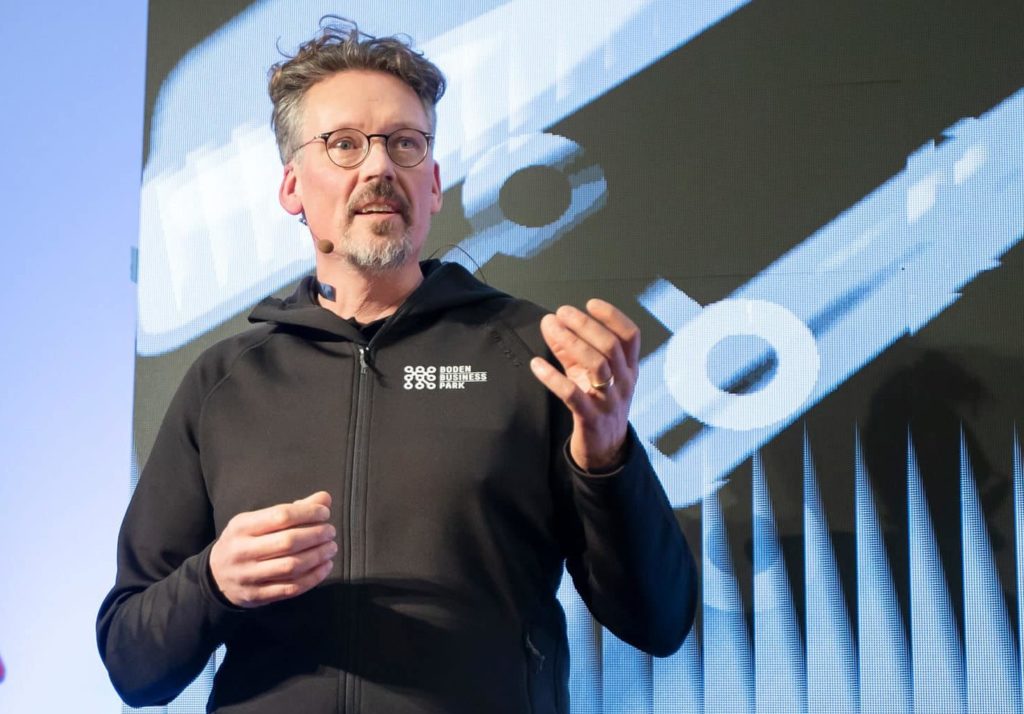Two cities with completely different abilities, but with a gigantic common challenge. Now Boden and Luleå will develop together with a common strategy.
Boden and Luleå are two cities that have caught the world’s eye thanks to large green industry start-ups that want to reform the sector.
The steel industry currently accounts for about seven percent of global greenhouse gas emissions. H2 Green Steel and Hybrit intend to change that by producing steel using green hydrogen gas that does not contain or emit any carbon dioxide.
This is a development that involves major changes. Not just for the industry. The whole society and the region need to face the transition. The electricity grid needs to be expanded and strengthened to produce the hydrogen. New housing is needed for those who will build and manufacture the steel mills. In addition, transport and infrastructure linked to the new industries are needed.
Bused to Boden
Therefore, the theme of Friday’s business breakfast was “Growing through collaboration” and Luleå Business Region had booked a bus that made it possible for companies from Luleå to come to Boden and participate.
– There are many areas where companies in both Luleå and Boden benefit from thinking outside the municipal boundaries. Culture, creative industries and perhaps above all the hospitality industry, where we are quite small compared to Northern Finland. There we need to build a better partnership to strengthen our opportunities, says Richard Lundmark, CEO of Luleå Business Region.
 Claes Nordmark and Carina Sammeli in conversation during the business breakfast in Boden.
Claes Nordmark and Carina Sammeli in conversation during the business breakfast in Boden.
At the municipal management level, there is already a well-established collaboration between Boden’s mayor Claes Nordmark (S) and Luleå’s counterpart Carina Sammeli (S).
– We are both in the same boat and it feels good not to be alone. I have benefited greatly from the cooperation with Carina and Luleå. They have long had industrial settlements, which is new for Boden. Then it’s good to be able to ask what they’ve done and what they’re doing now,” says Claes Nordmark.
– Boden is very good at business development and in proximity to decisions. They work close to the population, which is partly due to the fact that they are a smaller organisation. But that’s where I and we as a municipality need to improve, and we can learn a lot from Boden’s attitude and working methods,” says Carina Sammeli.
Port and hydrogen
Work is also underway to broaden cooperation and make it even more concrete. A common business strategy.
The strategy will be used to create the conditions for small, medium and large enterprises to develop within the region.
– We both have resources that benefit the other and this is an optimal basis for good cooperation,” says Thomas Fägerman, CEO of Boden Business Park.
 Thomas Fägerman sees great advantages in cooperating within the region.
Thomas Fägerman sees great advantages in cooperating within the region.
One of several examples is that Luleå has a port that Boden lacks, while Boden is a hub for the electricity grid and will have the world’s largest green hydrogen plant in the municipality.
– Working with infrastructure may not sound like a lot of fun, but it’s really important. And it’s hugely important that we speak the same language. We need to plan and build in a way that enables cooperation and development for companies in both municipalities and in the region,” says Thomas Fägerman.
Commuting opportunities
Another issue raised was the possibility for people to live in one municipality and work in the other.
– My view is that most people and businesses don’t care about the municipal boundary. We live where we want to be and work where we want to work. There are already thousands of people commuting between our municipalities, so we need to make sure it works and is easy,” says Carina Sammeli.
Boden’s mayor fills in:
– Together we are over 100,000 inhabitants and we start talking volume even on a national scale. Volume is something that businesses and companies thrive on. This, together with growth, where we are steadily growing as a region, will make us strong and prosperous,” says Claes Nordmark.